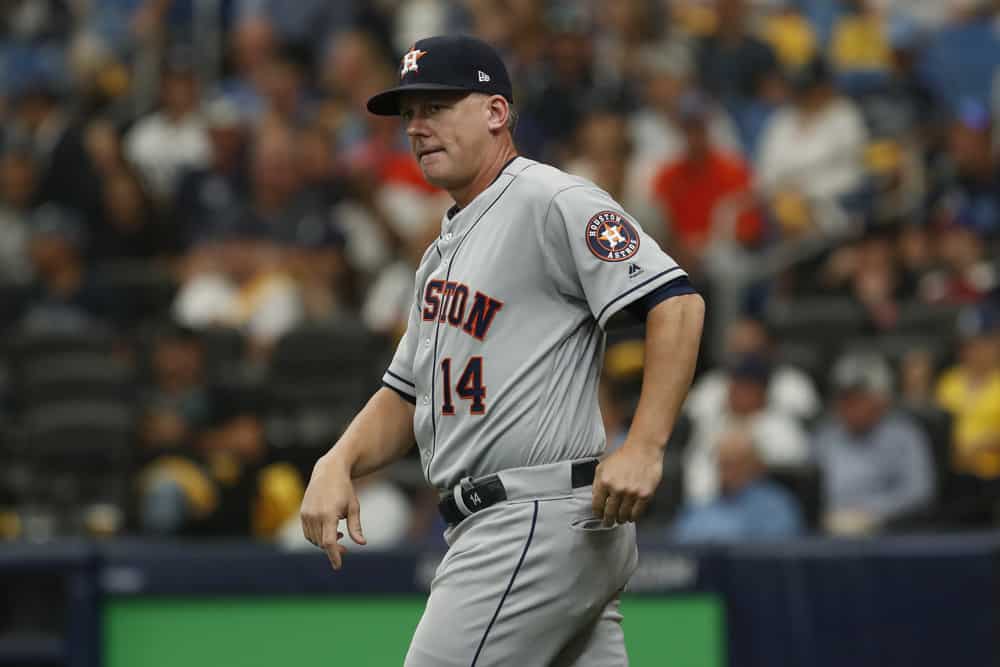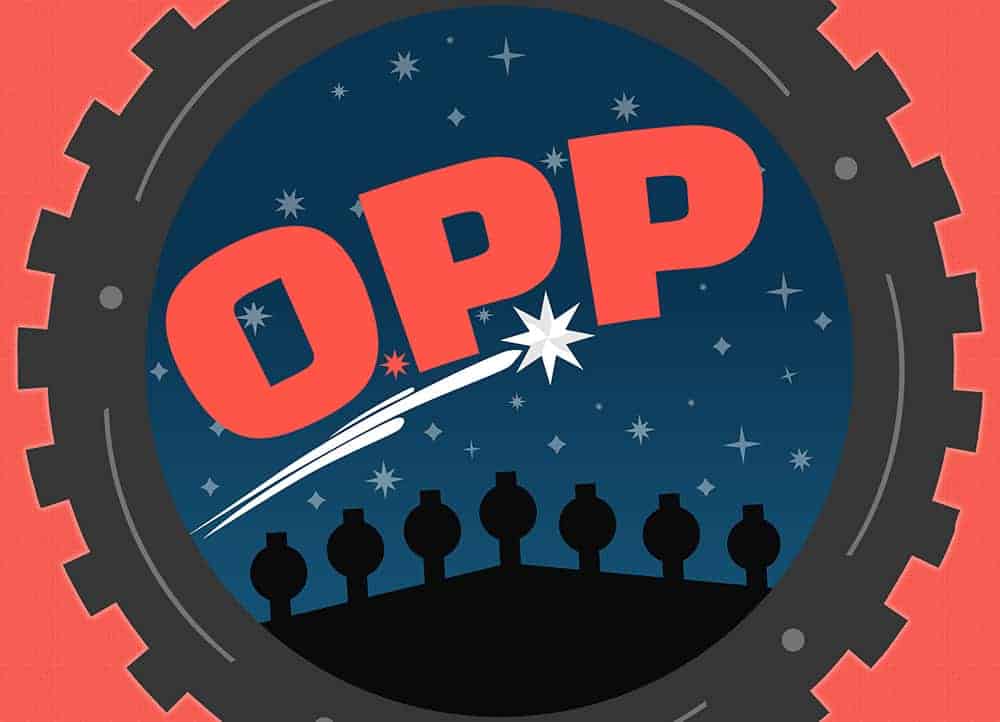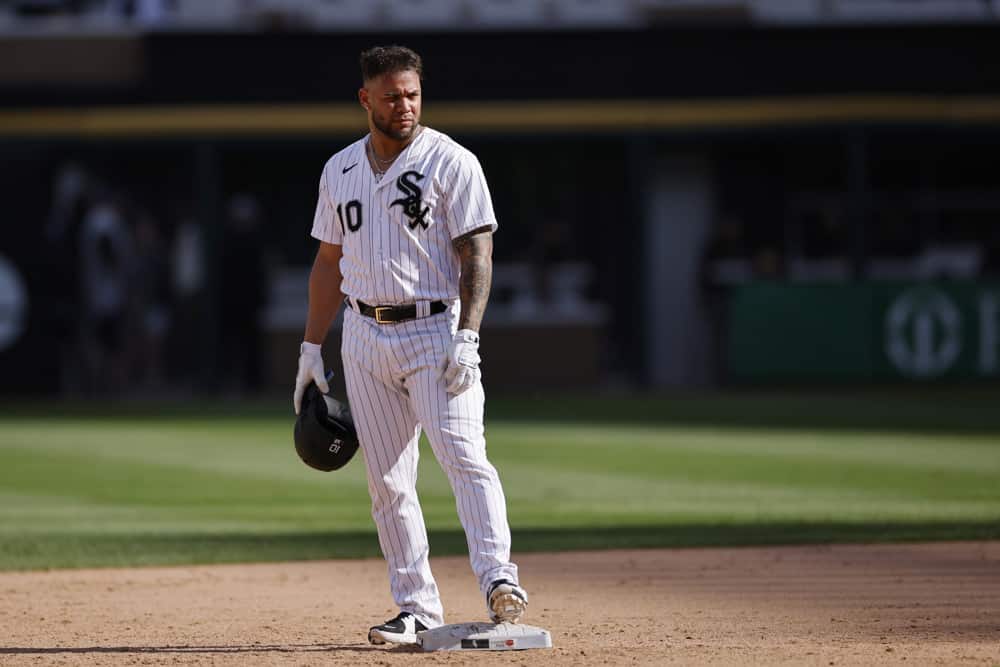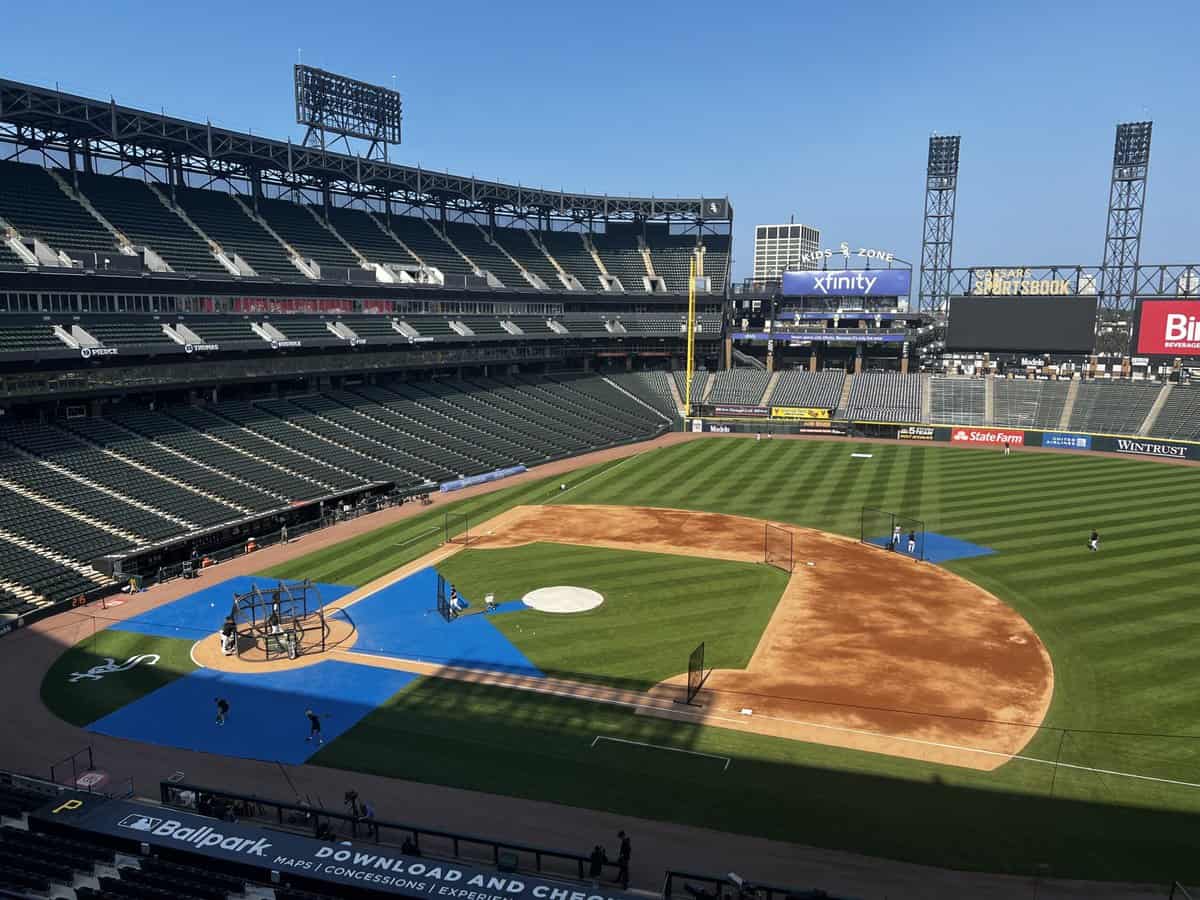Because no team's problems are unique, you can indirectly rehash Rick Renteria's disastrous bullpen game in Game 3 of the wild card series by reading Lindsey Adler's story about Aaron Boone's reputation after the Yankees' busted opener strategy in Game 2 of the ALDS.
If you'd missed it, Boone already had J.A. Happ warming while Deivi Garcia retired the first two batters in the first inning. Garcia gave up a solo shot to Randy Arozarena before he completed his inning, after which Happ took over and gave up a pair of two-run homers over the next two innings. The Yankees trailed 5-1 on their way to a 7-5 loss, Happ sounded miffed by the unusual usage after a long layoff, and the Rays ended up taking the series in five games.
If the gambit worked, the Yankees would have out-Raysed the Rays. As it stood, it's generating questions about how much autonomy Boone has in the dugout. Brian Cashman went out of his way to vouch for Boone's independence.
A few minutes into his end-of-season news conference Wednesday, general manager Brian Cashman offered stunning pushback to the perception that Boone does not control the team’s games.
“It’s been asked several times about the manager being a puppet,” Cashman said. “None of that’s true.”
I'd guess that Boone's calls are his own, because clubhouses generally seem to be able to sense weak managers, and Boone holds his own there. There's just a limited effectiveness in such a strong denial.
And this is a path the White Sox could be headed down depending on how they go about filling their managerial vacancy.
Daryl Van Schouwen wrote about the deteriorating relationship between Renteria and the front office, and while Renteria probably absorbed a lot of valid criticism ....
Even before that, not all was seashells and balloons between Renteria and the front office. Renteria and his coaches, including pitching coach Don Cooper, pushed back not entirely but to a degree on the in-game use of metrics and data as supplied to them by the Sox’ baseball operations staff, sources said.
... it sounded like he also offered valid pushback.
That — along with Renteria’s belief that the rebuild was ahead of schedule, yet his desire to add pitching help at the trade deadline fell on deaf ears — created some disharmony, sources said.
It's fun to picturing Renteria offering this as, "Oh, so NOW it's important to win." However he voiced this, it puts a different spin on the White Sox's inactivity at the trade deadline, which came after a meeting with players, coaches, and executives that attempted to gauge the temperature of the clubhouse as the front office pondered moves.
Asked about weighing the addition of a player with character questions, White Sox general manager Rick Hahn revealed that Sunday included not just a walk-off win, but a meeting around a conference table at Guaranteed Rate Field involving himself, executive vice president Kenny Williams, manager Rick Renteria, chairman Jerry Reinsdorf, and seven key veterans.
It was an opportunity to assess the clubhouse culture, the status of the team’s play and locker room, and in possible examples of well-traveled veterans like Yasmani Grandal and Dallas Keuchel, an opportunity to get feedback about players and potential additions across the league.
I was reminded of Keuchel's inclusion in this meeting by his tweeting, which is normally something he doesn't do. He hadn't posted anything since April until the dismissals of Renteria and Don Cooper broke. His his first tweet thanking his now-former bosses hasn't been noticed, like or retweeted as much as the tweet that followed.
Had Keuchel risen to prominence with any other team besides the Houston Astros, this could've been interpreted as boilerplate optimism. But the White Sox are seeking a proven upgrade at the helm and A.J. Hinch is one of the few available managers who meets the description, so the message urged close readers to connect some dots. It was similarly easy to recall Keuchel airing his grievances to the media in early August after Ken Rosenthal reported that "some White Sox veterans felt Renteria needed to hold players more accountable" in the wake of Renteria's firing.
Hinch was part of a well-oiled machine with the Astros, but a lack of friction is not always a feature. Below the manager, the last years of Ozzie Guillen are what it looks like when underperforming players aren't even acknowledged, much less addressed. Above the manager, the Yankees show that it's easy to stoke suspicions that a manager isn't convinced in his own calls, regardless of their validity.
The Astros are an example of something else entirely. Houston's lack of organizational friction allowed Hinch to resurrect his managing prospects, because his debut with the Diamondbacks was a dud. He was taken out of the Arizona front office and planted in the dugout, replacing a more traditional and respected authority figure in Bob Melvin. He never commanded respect of a quorum, and he fell out of favor after just two partial seasons.
With Houston, the front office had already set the tone for an analytics-friendly manager like Hinch. They didn't need somebody to keep talent in line as much as they needed a guy to put that talent in a position to make the most of it. It worked spectacularly, at least until it all came crashing down.
Hinch's post-firing apology tour probably offers the most honest account of any of the figures involved. Some of his answers nevertheless invited further questions. Hinch, whose lack of any coaching experience left him struggling to connect to players in Arizona, sounded like he overcorrected in his version of the banging scheme. He allegedly smashed the monitor they were using to steal signs, but it sounded like he didn't directly ask or demand his players to stop.
Astros players told investigators that if Hinch had told them to stop stealing signs, they would have ceased the activity.
“That’s hard to hear,” Hinch said. “I hope so.”
But even after Hinch damaged two monitors, according to the investigation, the Astros continued to steal signs “throughout the postseason.” Taking a bat to the monitors wasn’t enough to deter them.
“Clearly it wasn’t,” Hinch said. “It’s something what I look back at as something I could have done better.”
If the Astros front office engineered the scheme, and the players and coaching staff sustained it without Hinch's involvement or support, then it's fair to wonder how much he individually contributed to the proceedings.
There is fresh evidence of Hinch's willingness to defy a player, although it surfaced in a way that doesn't flatter him. After Dusty Baker left Zack Greinke in to escape his own mess in Game 4 against the Rays on Wednesday, Greinke noted the difference in how he'd been handled by the previous administration:
“It’s nice having someone have confidence in me,” Greinke said. “Since I‘ve been here, they haven’t seemed to have confidence in my ability. So, it was nice having that happen at an important time like that.”
Baker might've made a mistake by leaving in Greinke, but last postseason, Hinch made the opposite call to terrible results. In Game 7 of the 2019 World Series, Hinch pulled Greinke despite just 80 pitches with one out in the seventh. An Anthony Rendon homer cut Houston's lead to 2-1, and Hinch lifted Greinke after a subsequent walk to Juan Soto. Hinch called for Will Harris, who promptly surrendered a two-run homer to Howie Kendrick, and the Nats went on to win it all. You may remember that Gerrit Cole never pitched in the elimination game, and he wore a Boras Corp. hat instead of Astros gear as he prepared to head into free agency.
Long, meandering story short, friction is unavoidable in even the most optimized of environments. I'd go further and say that friction is welcome, especially in cases where, I dunno, it attempts to halt the sport's biggest scandal in decades.
That's probably the biggest selling point for this Tony La Russa business, as he's never shied away from upsetting people if he thought it would accomplish the job. He's the guy who opened his St. Louis career by benching Ozzie Smith, and managed an uncomfortable relationship with Scott Rolen for the best years of his career. Sure, La Russa has provided even more evidence over the past decade that 2021 is not the time for any of this, but if you're looking for a non-Reinsdorf reason for what appears to be dangerous levels of Reinsdorfian sentiments, this is the best I can provide. Nobody could accuse La Russa of being a front office puppet, for better or for worse. Probably worse.
(Mark LoMoglio/Icon Sportswire)





